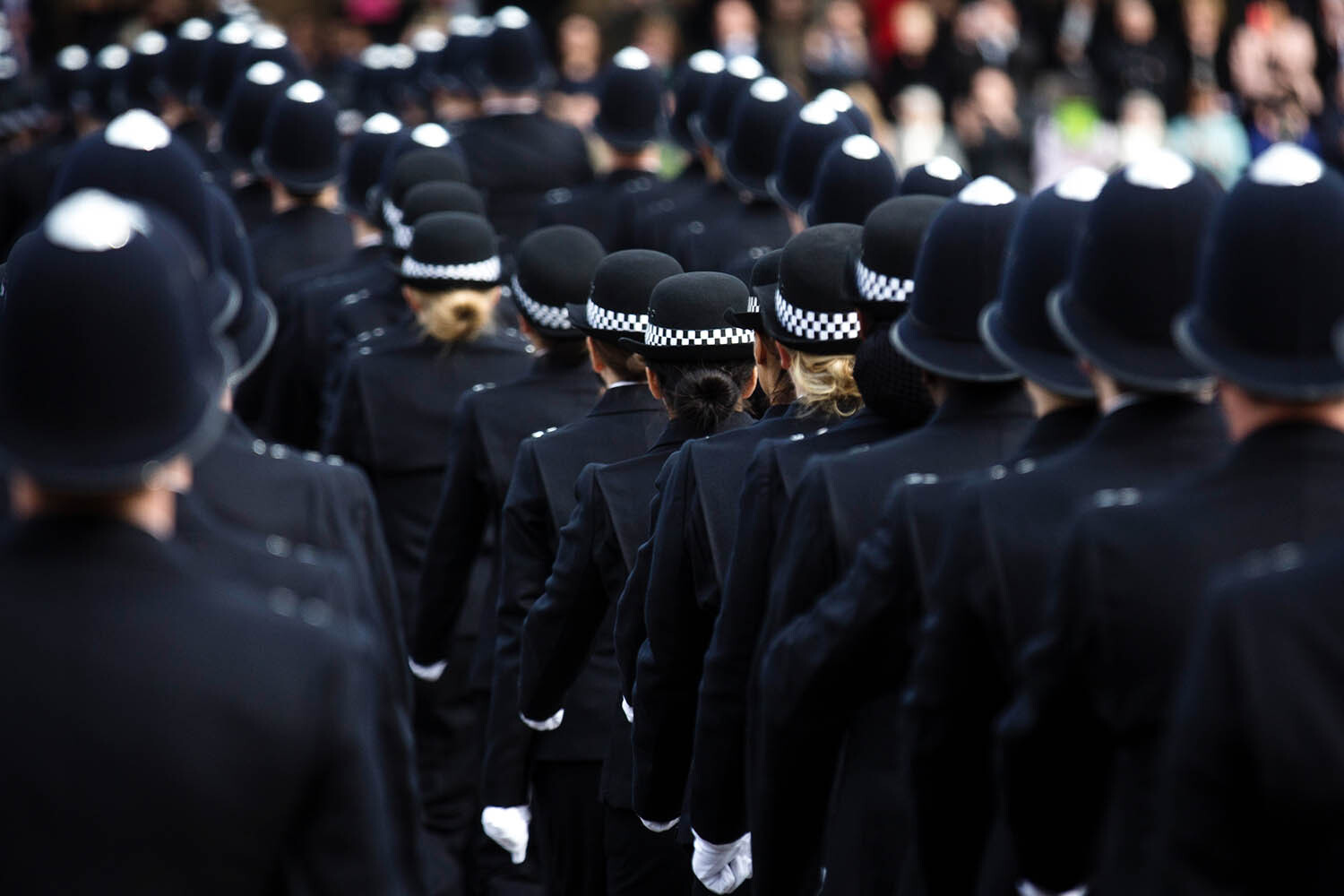Welcome to the Sensemaker, our daily newsletter. It features calm and clear analysis on the stories driving the news across tech, politics, finance, culture and more. The Sensemaker will appear here every morning, but to receive it in your email inbox, sign up on our newsletters page.
The CEO of the staff association for frontline police officers is thought to be the highest paid man in UK policing.
So what? This is despite doubts over the organisation’s relevance and future. The Police Federation of England and Wales represents 145,000 police officers from constable to chief inspector. Specifically, it
•
provides legal support during misconduct or criminal proceedings;
•
fights officers’ corners over pay and conditions; and
•
lobbies ministers over welfare.
But once highly influential, the Fed is now under threat.
Slow decline. For more than a decade, the Police Federation’s reputation has been damaged by scandals relating to bullying, misogyny and corruption. Now a series of suspensions of elected representatives has exposed high-level division and in-fighting.
The vetting furore. Last month the Met Federation, the Fed’s London branch, helped bring a judicial review in the case of Sergeant Lino Di Maria. Di Maria had his vetting revoked over past allegations of sexual offences including rape – which he denies, and none of which led to charges or conviction.
The Met Fed threw its weight behind Di Maria’s judicial review of the decision to remove him and won. The Met commissioner, Mark Rowley, called the Fed “perverse” for backing the case.
Born out of crisis. The Police Federation was set up as a statutory organisation after officer strikes in 1918 and 1919 led to rioting and looting. Fears of an all-out Bolshevik revolution prompted the government to ban police officers from taking industrial action and create staff associations for three tiers of policing, with the Fed representing those on the frontline.
To power and wealth. In 2007 the Fed built a £26 million headquarters in Surrey, complete with swimming pool, gym, grace-and-favour apartments, a hotel and a TV studio.
Borne back into crisis. Remember Plebgate? A court would eventually find that Andrew Mitchell MP, on balance of probabilities, called an officer at the entrance to Downing Street a “pleb” for telling him to get off his bike and use a pedestrian gate. That was in September 2012.
Newsletters
Choose the newsletters you want to receive
View more
For information about how The Observer protects your data, read our Privacy Policy
In the aftermath officers were caught lying about the incident (one made up a supporting witness account and was jailed) while another – a Fed rep – would be found guilty of misconduct after he misled the public about what happened at a subsequent meeting.
The May ultimatum. Theresa May clashed repeatedly with the Fed in her time as home secretary. In 2014, after a scathing independent review by Sir David Normington found the organisation to be riddled with bullying and dysfunction, May used a speech at the Fed’s annual conference to tell them to change or have change imposed upon them.
The pension betrayal. When the austerity axe swung for public pensions in 2015 and it became clear that the losers would be younger officers, the federation backed the government.
This preserved a deal that would see many older members, including those on the national board, remain on more favourable pensions. It also put them on the wrong side of a court case which eventually cost £24 million in payouts to members who lost out.
Outside hires. Management then chose to pay large sums to consultants to help implement reforms laid out in the 2014 review. In came Accenture, the corporate services firm, and a team of business people.
One of them, Mukund Krishna, landed a job as the Fed’s chief operating officer and eventually became CEO. The job was never advertised. Krishna is now thought to be the highest paid man in British policing. His wage is believed to be between £320,000 and £340,000, according to several sources who talked to The Observer. The Fed has promised to publish an exact figure soon.
The problem. The organisation is facing financial difficulties that mean it has to sell its expensive headquarters to pay its bills.
The reaction. Chief constables, politicians and police officers have expressed shock at the idea anyone at the Fed could be paid more than the Met commissioner, who earns £315,000 for a role one source said was “the second-toughest job in the UK after being prime minister”.
What’s more… Sources say the Police Federation is having little impact in terms of pay, conditions and welfare for its officers. The Fed denies this, saying it is in daily contact with the Home Office and policing minister, and that it is doing its job. Another independent review, due to report soon, may take a different view.
Further listening: Broken ranks



